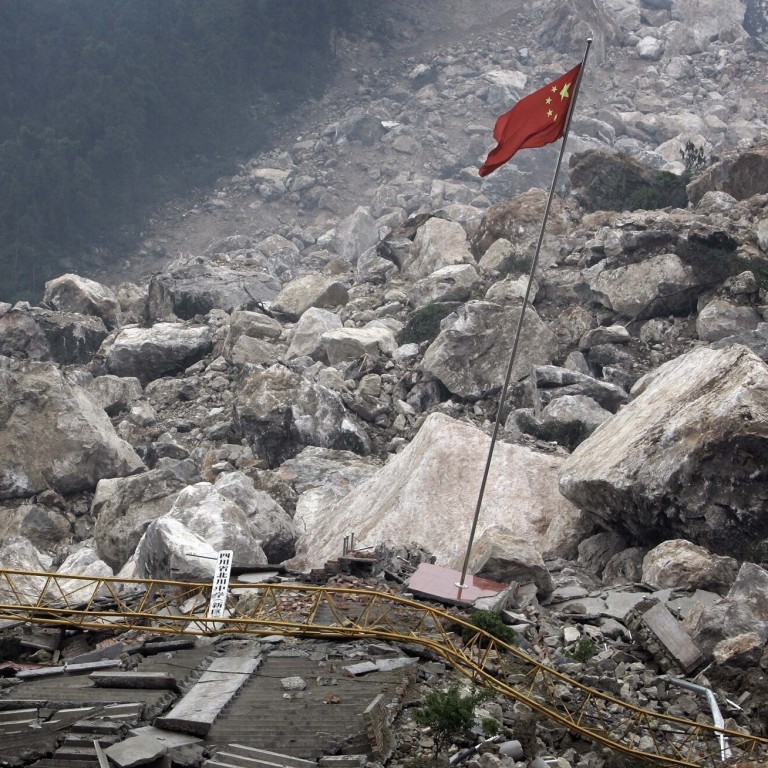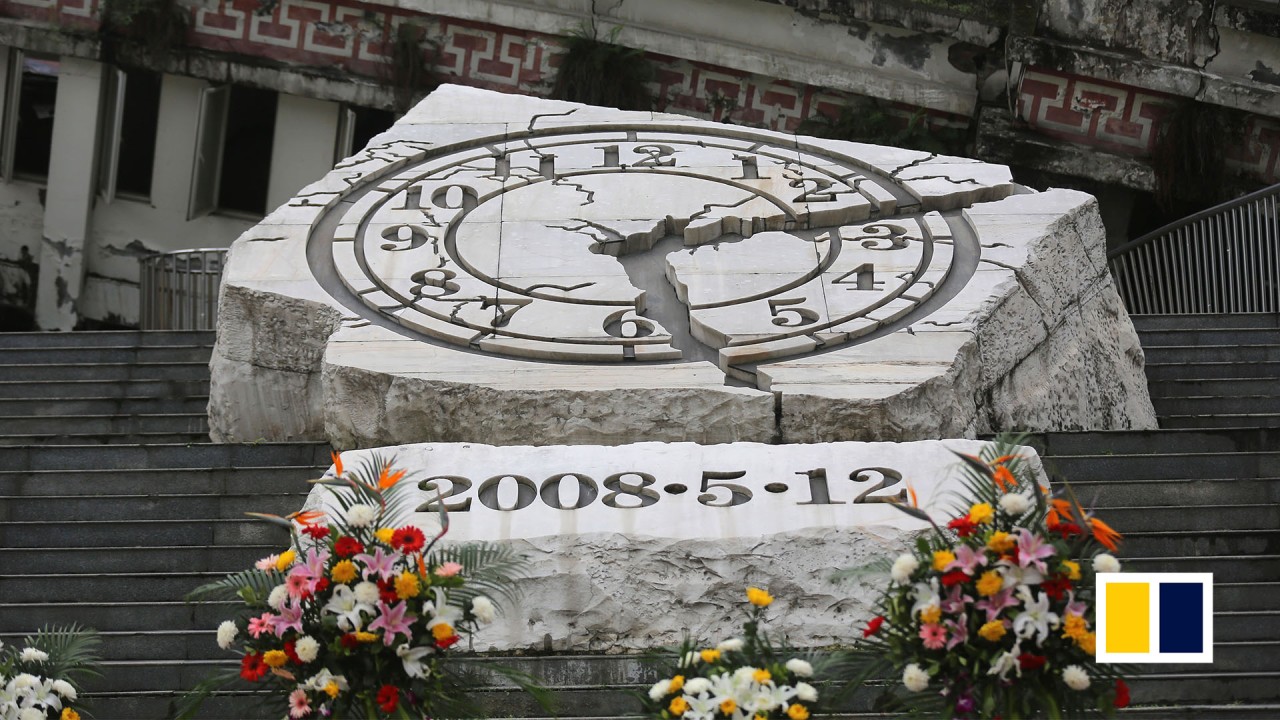
How China’s steady erosion of media freedom rose from Sichuan’s ruins
- Journalists and activists hoped the 2008 earthquake would open a crack in censorship
- Instead, it was the start of more than a decade of tight control of traditional and online outlets
While the Sichuan earthquake took a heavy toll on life, property and the environment, it also saw a brief period of unusual media and online activism in China, which some described as opening a crack in Chinese censorship.

01:28
China marks 10-year anniversary of Sichuan earthquake
As mainland authorities scrambled to come up with a disaster response strategy, Chinese journalists, bloggers and activists quickly began to question whether corruption and shoddy construction were to blame for the collapse of schools across the quake zone.
Some initially believed the rare openness was partly due to the Communist Party’s concern about its external image just weeks ahead of the Beijing Olympics, raising hopes for an improvement in the country’s tightly controlled media environment.
Sichuan earthquake victims remembered by bereaved parents and survivors amid tight security
The Sichuan earthquake arguably marked the beginning of another decade of China’s stringent control of traditional media and the internet, as the country’s autocratic leaders stepped up censorship, limited political freedom and trod on civil rights.
The deterioration of media freedom in China appears to be part of the party’s broad campaign to consolidate its power at home while increasing its soft power influence and expanding media presence beyond its borders.

01:28
China marks 10-year anniversary of Sichuan earthquake
For years, Beijing has seen the Western media “not as free institutions but rather as tools of Western domination” and been keen to create a new international order to “break the Western media monopoly”, according to Jeffrey Bader, a veteran China hand in the United States.
Against the backdrop of China’s deepening feud with the US, it helps explain Beijing’s growing hostility towards Western media and their scrutiny of China’s global ambitions. Apart from expelling more than a dozen American journalists last year, Chinese leaders, scholars and state-controlled media have in recent years touted the idea of establishing a home-grown version of free speech and media freedom “with Chinese characteristics”.
Highlighting Beijing’s awareness of the role journalists could play in its efforts to repair its international image and challenge the US globally, President Xi Jinping urged state broadcaster CCTV and its overseas-arm CGTN to “tell China stories well to the world” four years ago. In another comment specifically on what kind of journalism the party supports, Xi was quoted as saying the next year that “any news report has its own direction. What to report, what not to report, and how to report contains positions, opinions, and attitudes.”
Reporters Without Borders and the US government-backed Freedom House have repeatedly ranked China near the bottom of their annual freedom index and warned of Beijing’s spending spree to “interfere with media reporting in other countries” to get its messages across. The situation in Hong Kong and Xinjiang has further galvanised those who have concerns about China’s ambition for superpower status, especially among its neighbours in the Asia-Pacific.
While Beijing routinely dismisses allegations about China’s media censorship as absurd and ideologically driven bias meant to vilify China and its rise, the steady erosion of media freedom in mainland China and Hong Kong is by no means conducive to its external efforts to repair its reputation. As China needs to rebrand its authoritarian system and rally as much support as possible in its long struggle with the US, it remains to be seen how its efforts to promote a China-centric media order pan out.

